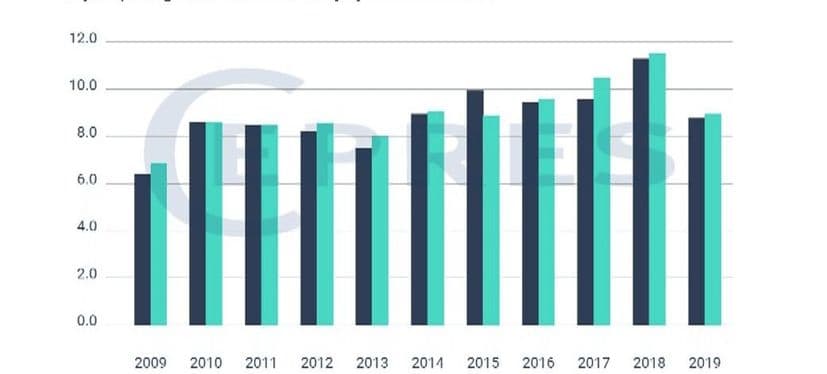The fundraising activity coincides with the overall increase in US buyout entry EBITDA pricing multiples that have breached 11x in the median case which far exceeds the 9x median in 2007, and as the positive economic cycle continues into beyond the ten-year mark, so is US buyout fundraising and investment activity.
European buyout deal pricing is also trending upwards with the 11x median also surpassing the 10x median in 2007. Second-quarter venture capital fundraising in Europe also showed robust growth QoQ and YoY albeit still at a much lower level compared to the US.
Our latest transaction analysis illustrates the dispersion in valuation multiples paid for diverse business models. Large amounts of buyout capital are currently focused on businesses with strong revenue growth driven by technological transformation. This is driving up valuations in these segments compared to traditional sectors and businesses unable to leverage technology to drive improved revenue or margins. The massively uncorrelated scalability of revenues leveraging new technologies, generally justifies the increased valuations being paid for these innovative business models and relative pricing is still balanced in a macro sentiment that currently faces a high systematic risk.
Dr. Daniel Schmidt, Founder & CEO, CEPRES
